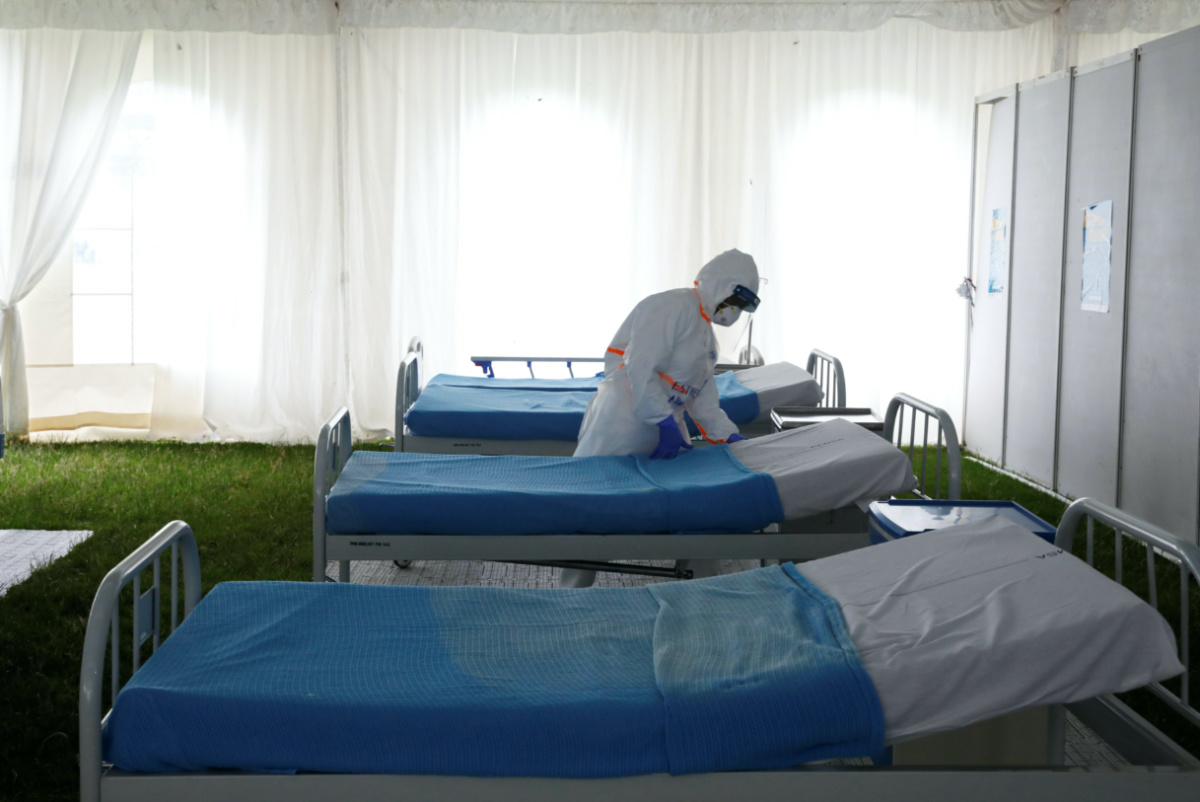Geneva, Switzerland
Reuters
Poorer countries are increasingly losing healthcare workers to wealthier ones as the latter seek to shore up their own staff losses from the COVID-19 pandemic, sometimes through active recruitment, the World Health Organization said on Tuesday.
The trend for nurses and other staff to leave parts of Africa or South-East Asia for better opportunities in wealthier countries in the Middle East or Europe was already under way before the pandemic but has accelerated since, the UN health agency said, as global competition heats up.

A nurse is seen inside a screening and isolation field hospital set to fight against the spread of the coronavirus disease (COVID-19) at a soccer stadium in the town of Machakos, in Machakos county, Kenya, on 22nd April, 2020. PICTURE: Reuters/Baz Ratner
“Health workers are the backbone of every health system, and yet 55 countries with some of the world’s most fragile health systems do not have enough and many are losing their health workers to international migration,” said Tedros Adhanom Ghebreyesus, the WHO director-general.
He was referring to a new WHO list of vulnerable countries which has added eight extra states since it was last published in 2020. They are: Comoros, Rwanda, Zambia, Zimbabwe, East Timor, Laos, Tuvalu and Vanuatu.
Jim Campbell, director of the WHO’s health workforce department, told journalists safeguards for countries on the WHO list were important so they “can continue to rebuild and recover from the pandemic without an additional loss of workers to migration”.
Some 115,000 healthcare workers died from COVID around the world during the pandemic but many more left their professions due to burnout and depression, he said. As a sign of the strain, protests and strikes have been organised in more than 100 countries since the pandemic began, he added, including in Britain and the United States.
“We need to protect the workforce if we wish to ensure the population has access to care,” said Campbell.
Asked which countries were attracting more workers, he said wealthy OECD countries and Gulf states but added that competition between African countries had also intensified.
The WHO says it is not against migration of workers if it was managed appropriately. In 2010, it released a voluntary global code of practice on the international recruitment of health personnel and urges its members to follow it.






